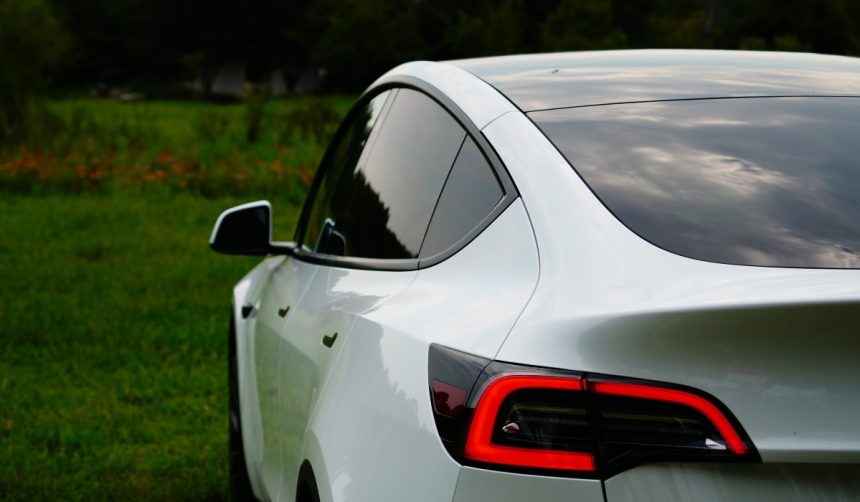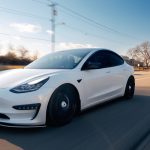Tesla owners may soon enjoy significant savings on insurance for vehicles equipped with Full Self-Driving (FSD), following an unexpected proposal from Shai Wininger, Co-founder and President of Lemonade. Wininger suggested insuring Tesla FSD miles for “almost free,” leveraging direct data integration between Lemonade’s platform and Tesla’s advanced vehicle systems. This initiative comes as both traditional insurance costs for Teslas remain relatively high and new safety data shows FSD-equipped vehicles outperform human drivers. As the debate over autonomous driving safety grows, Lemonade’s approach taps into a shifting landscape of risk assessment for tech-driven cars, potentially leading to substantial cost reductions for Tesla owners. Industry analysts are watching closely to see how insurance standards might adapt to self-driving technology, as this could influence broader adoption and ownership costs.
Earlier coverage of Tesla’s self-driving insurance focused primarily on Tesla Insurance and its state-by-state expansion rather than innovative third-party partnerships. Lemonade’s proposed deep integration with Tesla presents a more automated and data-rich alternative, potentially disrupting the landscape. While previous reports highlighted high premiums due to repair costs, they largely omitted the growing body of safety data now supporting the use of autonomous features as a factor in premium reduction. The current approach marks a shift towards usage-based pricing aligned with actual driving behavior and technological capability, contrasting with earlier models that relied more on vehicle type and generic risk profiles.
How Will Lemonade Use Tesla’s Technology?
The integration proposed by Lemonade would remove the need for external telematics devices in their Pay Per Mile product, using Tesla’s built-in data collection instead. This streamlines the activation process for Lemonade Car policies on Teslas, reducing logistical costs and facilitating accurate risk assessment based on detailed driving data. According to Wininger, the collaboration allows Lemonade to collect “richer and more accurate driving behavior data than traditional UBI devices.” The company sees this as a way to make insurance activation effortless for Tesla drivers and to pass savings onto them.
Is FSD Actually Safer Than Human Driving?
Recent safety reports support the view that Full Self-Driving-equipped Teslas experience fewer incidents compared to human-operated vehicles. Notable tech figures have cited Tesla’s quarterly safety reports, which suggest FSD features make driving nearly ten times safer than human operation. Wininger echoed this perspective and emphasized the business case for adjusting insurance pricing based on emerging safety data. Lemonade’s readiness to insure FSD miles at minimal cost is fostered by their confidence in the underlying technology’s ability to reduce risk.
Which Tesla Owners Would Benefit From Lemonade’s Offer?
If implemented, the offer would be available to Tesla drivers in states where Tesla Insurance is not present. Tesla Insurance currently operates in a dozen states, but its expansion has slowed, leaving a gap for third-party insurers like Lemonade to enter the market. Lemonade’s offer could appeal to owners who want to minimize their insurance expenses while actively using FSD features. Wininger publicly invited Elon Musk to collaborate, stating,
“If Elon Musk is game, we’d be happy to explore insuring Tesla FSD miles for (almost) free.”
Lemonade also remarked on the improved experience for drivers, noting,
“This makes activating Lemonade Car on Teslas effortless and lets us cut hardware and shipping costs, helping lower prices for Tesla drivers even further.”
The growing connection between insurance technology and vehicle telematics continues to spark debate over who ultimately benefits—drivers, carmakers, or insurers. Lemonade’s proposal shows a shift toward digital convenience, personalized pricing, and enhanced transparency. As FSD and similar technologies evolve, insurance offerings may further adapt to risk profiles based on real-world data rather than assumptions tied to vehicle type or demographics. For Tesla owners, such advancements could lead to significant savings and wider access to semi-autonomous driving features, especially as providers aim to capture a share of this emerging market. When considering this landscape, consumers should weigh the convenience, potential cost benefits, and implications for privacy, as insurance driven by telematics data will rely on constant monitoring and sharing of personal driving habits.










